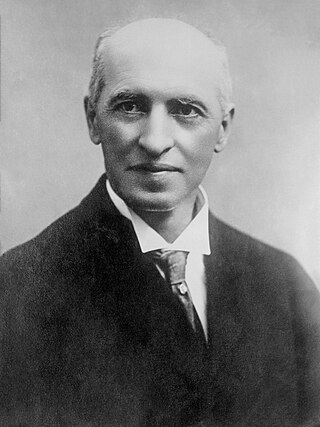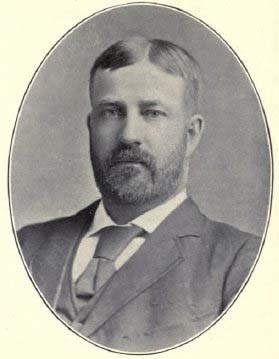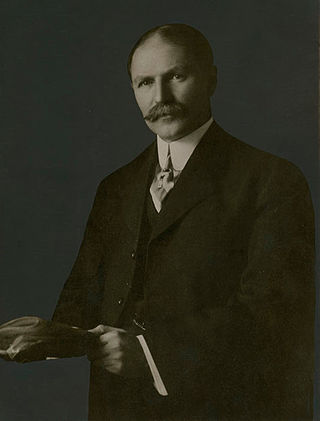Related Research Articles

Yukon is the smallest and westernmost of Canada's three territories. It also is the second-least populated province or territory in Canada, with a population of 43,964 as of March 2022. Whitehorse, the territorial capital, is the largest settlement in any of the three territories.

The 1872 United States presidential election was the 22nd quadrennial presidential election, held on Tuesday, November 5, 1872. Despite a split in the Republican Party, incumbent President Ulysses S. Grant defeated Democratic-endorsed Liberal Republican nominee Horace Greeley.

Arthur Lewis Watkins Sifton was a Canadian lawyer, judge and politician who served as the second premier of Alberta from 1910 until 1917. He became a minister in the federal cabinet of Canada thereafter. Born in Canada West, he grew up there and in Winnipeg, where he became a lawyer. He subsequently practised law with his brother Clifford Sifton in Brandon, where he was also active in municipal politics. He moved west to Prince Albert in 1885 and to Calgary in 1889. There, he was elected to the 4th and 5th North-West Legislative Assemblies; he served as a minister in the government of premier Frederick Haultain. In 1903, the federal government, at the instigation of his brother, made Sifton the Chief Justice of the Northwest Territories. After Alberta was created out of a portion of the Northwest Territories in 1905, Sifton became the first Chief Justice of Alberta in 1907 and served until 1910.

The Prohibition Party (PRO) is a political party in the United States known for its historic opposition to the sale or consumption of alcoholic beverages and as an integral part of the temperance movement. It is the oldest existing third party in the United States and the third-longest active party.

The Yukon Party is a conservative political party in Yukon, Canada. It is the successor to the Yukon Progressive Conservative Party.

Dennis G. Fentie was a Canadian politician. He was the seventh premier of Yukon and leader of the Yukon Party, serving from 2002 to 2011, as well as the MLA for Watson Lake.

Sir Rodmond Palen Roblin was a businessman and politician in Manitoba, Canada.
The Patrons of Industry in Manitoba was an extension of a farmers' organization operating in Ontario and the United States in the 1880s and 1890s. The Patrons lobbied extensively and became politically active, running provincial and federal candidates.

George Black was an administrator and politician in Yukon, Canada. He went to Yukon in 1898 during the Gold Rush and prospected for gold, making a fortune and losing it when his claim was swept away in a flood. He then established a law practice in Dawson City. He was elected to the Yukon Territorial Council in 1905, and first ran for the House of Commons of Canada in the 1908 federal election but was defeated.
Canada holds elections for legislatures or governments in several jurisdictions: for the federal (national) government, provincial and territorial governments, and municipal governments. Elections are also held for self-governing First Nations and for many other public and private organizations including corporations and trade unions. Municipal elections can also be held for both upper-tier and lower-tier governments.
In United States presidential elections, an unpledged elector is a person nominated to stand as an elector but who has not pledged to support any particular presidential or vice presidential candidate, and is free to vote for any candidate when elected a member of the Electoral College. Presidential elections are indirect, with voters in each state choosing electors on Election Day in November, and these electors choosing the president and vice president of the United States in December. Electors in practice have since the 19th century almost always agreed in advance to vote for a particular candidate — that is, they are said to have been pledged to that candidate. In several elections in the 20th century, however, competitive campaigns were mounted by candidates who made no pledge to any presidential nominee before the election. These anomalies largely arose from fissures within the Democratic Party over the issues of civil rights and segregation. No serious general election campaign has been mounted to elect unpledged electors in any state since 1964.

The 1905 Alberta general election was the first general election held in the Province of Alberta, Canada on November 9, 1905, to elect twenty-five members of the Alberta legislature to the 1st Alberta Legislative Assembly, shortly after the province was created out of the Northwest Territories on September 1, 1905.

The 1978 Yukon general election was held on November 20, 1978, was the first conventional legislative election in the history of Canada's Yukon Territory. Prior elections were held to elect representatives to the Yukon Territorial Council, a non-partisan body that acted in an advisory role to the Commissioner of the Yukon. Following the passage of the Yukon Elections Act in 1977, the 1978 election was the first time that voters in the Yukon elected representatives to the Yukon Legislative Assembly in an election organized along political party lines.

Klondike is an electoral district which returns a member to the Legislative Assembly of Yukon in Canada. One of Yukon's eight rural ridings, it is also the oldest riding in Yukon, first established in 1905. The riding includes Dawson City and its environs, as well as Eagle Plains.
The Yukon Territorial Council was a political body in the Canadian territory of Yukon, prior to the creation of the Yukon Legislative Assembly. Although not a full legislature, the council acted as an advisory body to the Commissioner of Yukon, and had the power to pass non-binding motions of legislation which would be forwarded to the commissioner for consideration.
The 1908 Leeds South by-election was a parliamentary by-election for the House of Commons constituency of Leeds South in the West Riding of Yorkshire held on 13 February 1908.

Sidney Alexander "Sandy" Silver is a Canadian politician, who served as the ninth premier of Yukon from 2016 to 2023. He was first elected to the Yukon Legislative Assembly in the 2011 election, and was re-elected in 2016. He represents the electoral district of Klondike and previously served as Leader of the Yukon Liberal Party.

Cornelia Hatcher (1867–1953) was an American suffragist and temperance activist. In 2009, Hatcher was named to the Alaska Women's Hall of Fame.

Mary "Mamie" Shields Pyle was a women's suffrage leader in the U.S. state of South Dakota. She was instrumental in the state's enactment of women's suffrage in 1918.